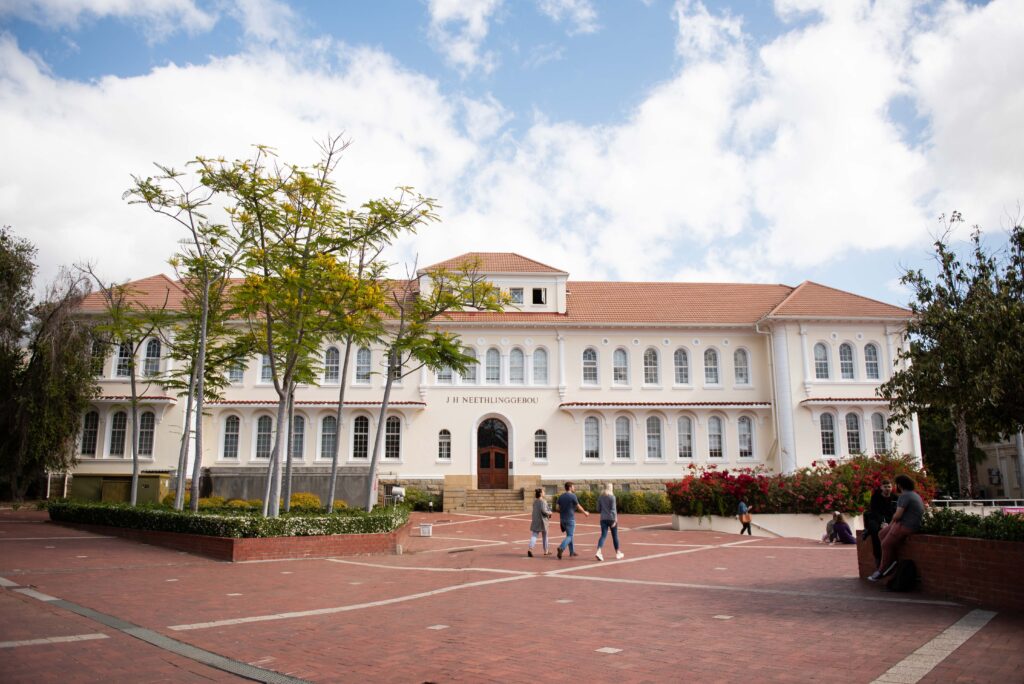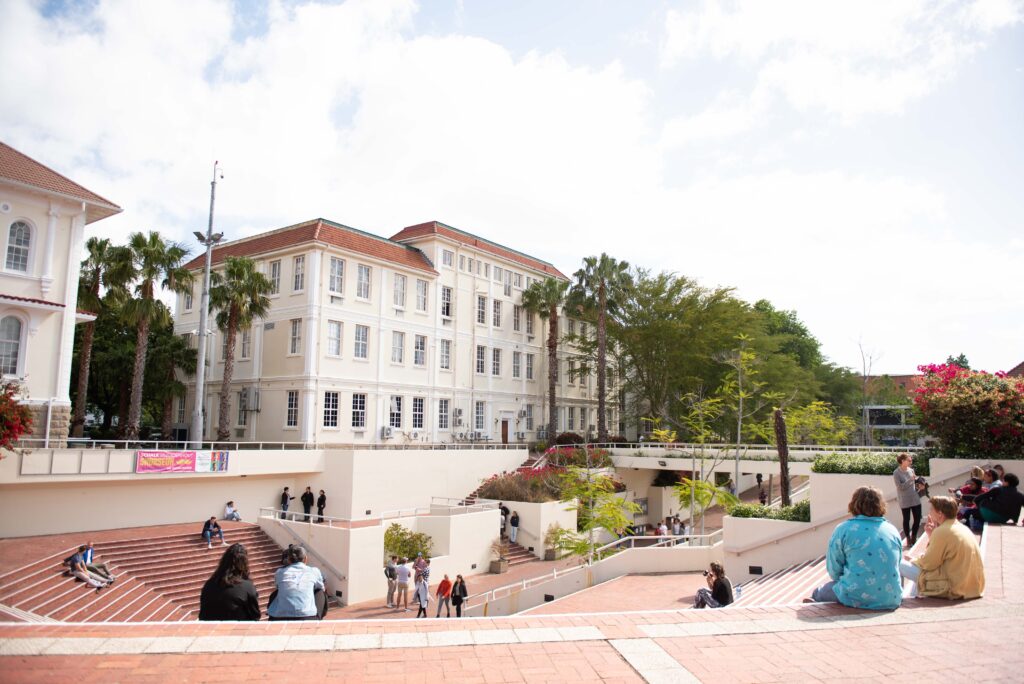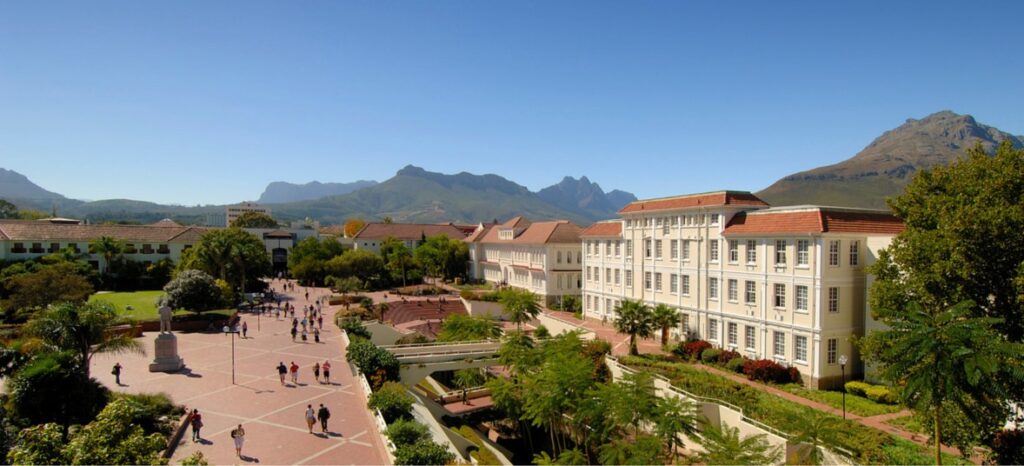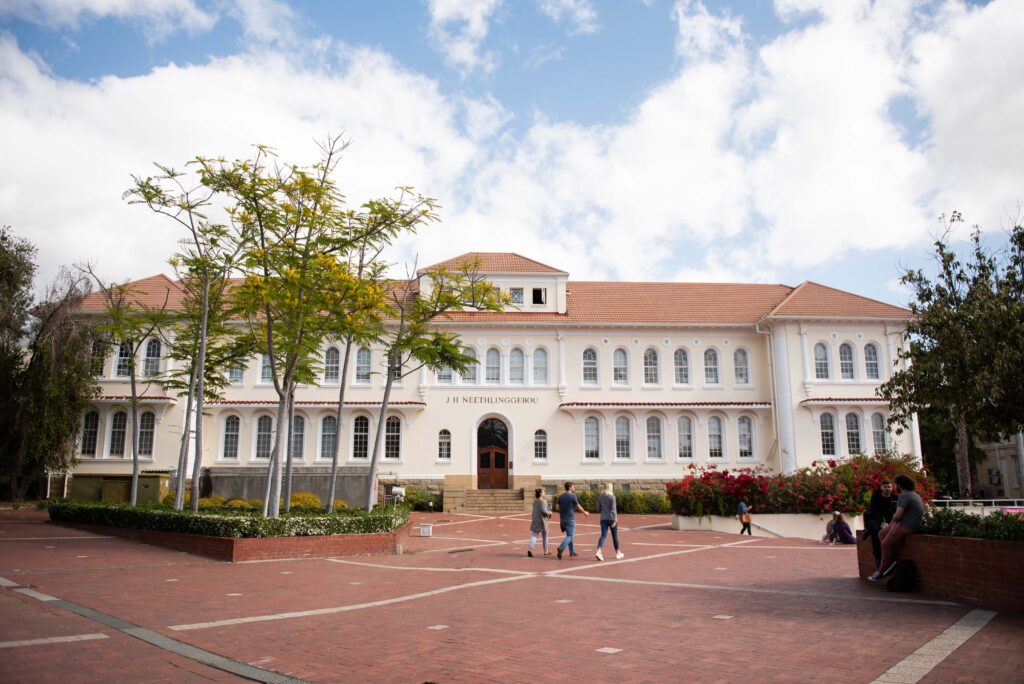History of UCC
The University of Cape Coast located within 500 metres of the Atlantic ocean. This makes it one of the rare sea front universities in the world. The university is located in the historic city of Cape Coast which is known to be one of the popular tourist destinations in West Africa to due to its historic sites, national park and beautiful and clean beaches. The city houses the Cape Coast Castle which was the seat of governance for Swedish, Portuguese, Danish, Dutch and the British colonial administrators. It was also the centre for the infamous transatlantic slave trade. https://ucc.edu.gh/main/about/cape-coast-a-historic-city
The University of Cape Coast is the topmost ranked University in Ghana and West Africa and it is 4th in Africa in the 2022 Times Higher Education World University Rankings (https://www.timeshighereducation.com/student/where-to-study/study-in-africa). The University of Cape Coast also ranks first globally for research influence.
We have several relevant undergraduate and postgraduate academic programmes in the social sciences, arts and humanities, physical sciences, life sciences, formal sciences and education. The focus of our programmes is informed by the global trends in addressing complex challenges of today. Our University provides a serene environment for learning and recreation with facilities designed to ensure student’s comfort. Academic programmes in the university are organised in five Colleges; the College of Health and Allied Sciences, Distance Education, Humanities and Legal Studies, Agriculture and Natural Sciences and Educational Studies. Our World class Centres of Excellence provide the requisite support for multi-disciplinary and trans-disciplinary teaching and research. https://www.youtube.com/watch?v=GF64Ra3Va4M
Our programmes are designed for both short stay students and those seeking degree admissions. We have strong partners both in Ghana and on every continent. Our education, research and innovation partnerships are built on best practices, which ensure mutual benefits.
Join our community-the University of Competitive Choice.
Opportunities at the University of Cape Coast, Ghana
College of Health and Allied Sciences
The College of Health and Allied Sciences (CoHAS) is designed to link the mission of UCC to humanity and offer unprecedented opportunities to people with interest in health professions. The College runs more than 12 undergraduate, masters and doctoral health-related professional degree programmes. The College hosts the School of Medical Sciences (SMS), School of Pharmacy and Pharmaceutical Sciences (SoPPS), School of Nursing and Midwifery (SoNM) and the School of Allied Health Sciences (SAHS). The teaching philosophy of the Schools links education to industry, knowledge to experience and theory to practice. https://cohas.ucc.edu.gh/about-college-of-health-and-allied-sciences
The University of Cape Coast is among the top 3 universities in Africa in the subject, Clinical and Health Sciences. The University placed 151-175th out of 925 universities ranked globally for 2022 and CoHAS takes pride in this.
Institutional Support
Through the Centre for International Education, the University offers the following support:
- Orientation service
- Airport pick up of fresh international students
- Tour of UCC campus
- Tour of Cape Coast Castle, Elmina Castle, and Kakum Canopy Walkway
- Assistance in registration of courses
- An Immigration Office at the University’s Centre for International Education – For processing student visas and resident permits
- Halls of Residence
- 6 halls of residents
- 1 for males only
- 1 for females only
- 4 for both males and females
- Hostels
- UCC Alumni Hostel
- Superannuation Hostel
- Student Representative Council (SRC) Hostel
- 6 halls of residents
- Academic Programmes on Offer
- MPhil (Infection and Immunity)
- MPhil (Drug Discovery and Development)
- PhD (Drug Discovery and Development)
RATIONALE
Ghana is a developing country that is faced with the challenge of providing quality healthcare for her populace. This has made quality healthcare available to only a small section of the population. In Ghana and the rest of the world, there are diseases or clinical conditions such as cancer and HIV-AIDS where available drugs have severe harmful side effects which limit their therapeutic benefits. Again, the menace of infectious diseases, drug resistance, emerging and re-emerging diseases have served as a strong motivation for the discovery of lead candidates and development of new drugs.
A UNDP report published in 2007 indicates that the inadequate number of health facilities coupled with the few numbers of trained personnel at healthcare facilities has resulted in many Ghanaians resorting to a combination of traditional and orthodox medicines for treating diseases. According to the report, an estimated 80% of the Ghanaian population relies on herbal preparations for primary healthcare. Currently, there is a proliferation of herbal medicines on the Ghanaian market (both rural and urban markets) purported to treat various diseases, but efficacies and the toxicities of some these drugs have not been investigated. There is therefore the need to identify the active principles in these herbal products, develop them into new drugs and also determine their toxicities.
The Department of Biomedical Sciences runs the MPhil/PhD programme in Drug Discovery and Development, which is one of the themes in Biomedical Sciences, following the current influx of medications (both herbal and allopathic) on the Ghanaian market. It is of relevance to Ghana that more investigations are conducted to ascertain the toxicity of these drugs as well as to discover new drugs with improved efficacy and less side effects. This programme is not run in any institution in Ghana.
Aim:
The main aim of the programme is to produce high calibre graduates with knowledge and skills to discover, synthesise new drugs, and assess the toxicological profile of new and existing drugs.
Objectives
The specific objectives are to equip students with:
- the knowledge and skills required for the discovery and development of novel chemical and biological entities into drugs.
- relevant skills to initiate and conduct research in the fields of drug discovery and development.
- fundamental competencies in various aspects of drug discovery and development to function effectively as part of a multidisciplinary team.
- entrepreneurial skills in biotechnology and pharmaceuticals.
OUTCOMES
Prospective graduates can look forward to thrilling careers in research and development in the pharmaceutical industries, research institutions, academic institutions, policy-making and regulatory agencies and in education.
MPHIL INFECTION AND IMMUNITY
RATIONALE
The Department of Microbiology and Immunology, University of Cape Coast, is not oblivious of the challenges infectious diseases present globally. While developed countries are concerned about re-emerging and emerging infectious diseases, developing countries like Ghana are rather concerned with battling HIV/AIDS, malaria, TB, etc. Our ability to deal with the current burden of infectious diseases and also curtail the re-emergence and emergence of new infections heavily hinge on having a critical mass of knowledgeable and highly skilled biomedical and medical scientists in the field of infection and immunity. However, such calibre of human resource is currently ominously lacking in the West African sub-Region.
The majority of existing postgraduate programmes had focused only on medical microbiology and a handful deal with immunology. Thus, graduates of these programmes may have deficiencies that make it difficult for them to develop into research leaders and accomplished academics in the vital area of infection and immunity. In response to this lack of adequate numbers of well-trained scientists in the area of infection and immunity, the MPhil programme was designed to equip candidates with the knowledge and skills needed for a career in teaching and research in medical microbiology and immunology. Thus, the curriculum for this programme expertly couples microbiology and immunology to present students with a holistic view of infectious diseases and immunity against pathogenic microbes.
PURPOSE
Aim:
The main goal of the Infection and Immunity programme is to provide students with the knowledge and technical skills needed for successful careers in infectious diseases research.
Objectives:
The specific objectives are to:
- Provide students with sound theoretical, conceptual and technical knowledge base in medical microbiology and immunology.
- Stimulate student to leverage their knowledge and skills to better understand and/or address the challenges of infectious diseases.
- Provide students with a sound basis for a prospective terminal degree (PhD) in infection and immunity.
OUTCOMES
The MPhil programme is designed to equip candidates with the knowledge and skills needed for a career in teaching and research in medical microbiology and immunology. Therefore, exciting career opportunities for prospective students include working in research institutions (fundamental research) as laboratory managers, researchers in hospitals, in the biotechnology and pharmaceutical industry, policy-making organisations in science and healthcare, and in education.

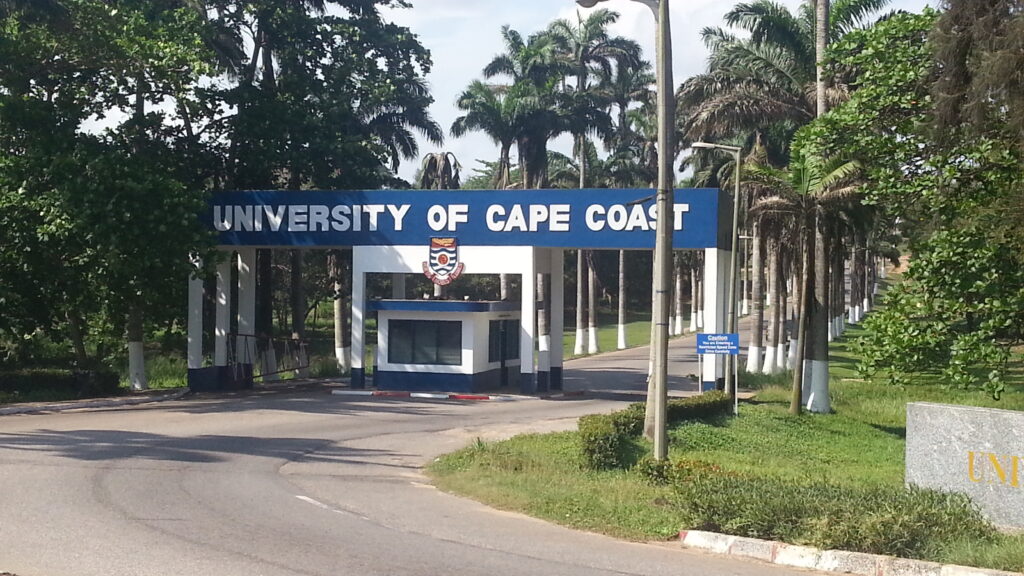
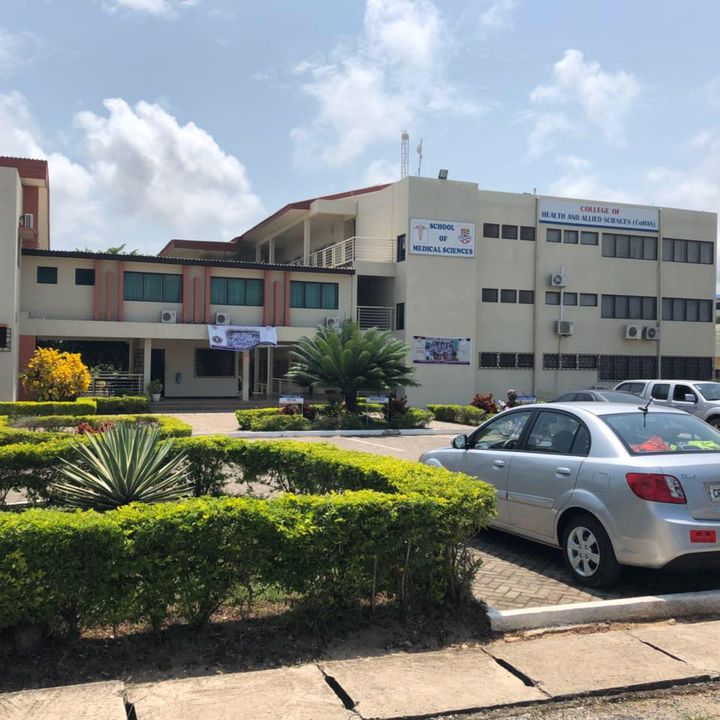
University of Cape Coast
Partnering for Health Professional Training in African Universities (P4PHT-II)
Institutional Details:
Acronym: UCC
Country: Ghana
Website: https://www.ucc.edu.gh
Contact Person of UCC:
Name: Prof. Dorcas Obiri-Yeboah
Telephone Number:+233244527387


